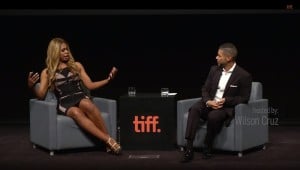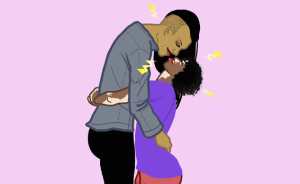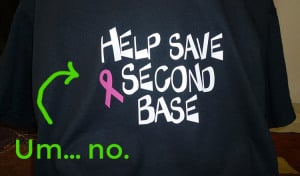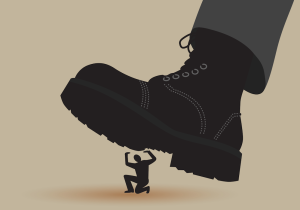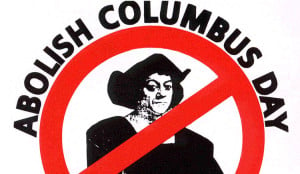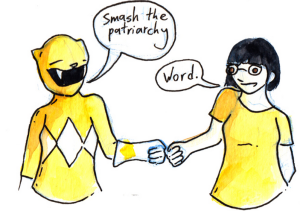Wilson Cruz: I was wondering if maybe you had any thoughts on transphobia with any LGBTQ community, sort of why it exists, what can be done to address it within our own communities.
Laverne Cox: You better work. You’re getting unvarnished Laverne tonight.
It is the 45th anniversary of Stonewall this year, and we’re here celebrating world pride here in Toronto.
When Stonewall—back in the 60s, when Stonewall was being raided by the police, they would raid Stonewall and line up all of the patrons of Stonewall and if you were not wearing at least three articles of clothing associated with the gender you were assigned at birth, you were arrested because there were anti-cross-dressing laws on the books in New York and all around the country.
It’s deep to me how many people don’t know that.
I said that at an event on Monday, and so many people had no idea about that history, so that Stonewall in part was about gender self-determination and gender freedom and protesting being policed in terms of our gender and that part of our history as LGBT people has been very subjugated, very suppressed.
People like Silvia Rivera and Marsha P. Johnson, Miss Major, were at Stonewall that night and were part of … It’s the [fete?] that actually Marsha P. Johnson threw the first punch and it was her birthday.
So she was not having it. So trans folks were at the forefront, and Stonewall was a hustler bar. It was a place where hustlers and trans folks and queens hung out.
Silvia Rivera was at the forefront of this movement along with other trans and gender non-conforming people. There’s this brilliant video that Reina Gossett actually put on the Internet a few years ago.
In 1973 Silvy Riverra had to fight her way on to stage at the gay liberation rally that year. Basically after—Is it four years after a movement that…
Wilson Cruz: 70- …
Laverne Cox: 1973?
Wilson Cruz: Yes.
Laverne Cox: Yes, 1973. This is 41 years, four years after she basically was at the forefront literally on the battle at the …
Wilson Cruz: The catalyst.
Laverne Cox: At the catalyst for this modern LGBT, with the [we can call it?] gay liberation movement at the time. She was being told by organizers that she did not represent the community.
That they did not want queens representing the community. That queens were anti-feminist and she fought her way onto the stage that day. She talked about being arrested, being raped, that she knows people who have been arrested, beaten, and raped and then she warned us that our LGBT movement should not become a movement for white, middle-class people, 41 years ago. Forty-one years. It’s deep.
I was watching that and it was like she, and Reina Gossett, my dear friend Rena Gossett of the Silvia Rivera Law Project, she’s a historian, she reminded me of the fact that initially the gay liberation march and movement was uptown in New York; that it was around in Central Park.
Then around ’73, ’74, they moved it downtown to where Christopher Street was because all the gay bars were there and they wanted the business after the parade.
Then that’s when it switched from “gay liberation” to “pride”.
Back then it was tied up in commerce, the switch from gay liberation to pride, and so there’s this whole capitalist thing going on there.
When I think about your question, I think about 45 years of history, of transpeople being pushed to the back of the bus, of people of color and working and street people being pushed to the back of the bus and capitalism and white supremacy taking over.
I think when we look at, or when we talk about ending transphobia within the LGBTQ community, I think it’s important to ask ourselves how do we end racism and the patriarchy within the LGBTQ community and classism in the LGBTQ community because all those things are working together due to disenfranchise and subjugate the issues of transpeople.
Wilson Cruz: Well I think that’s a perfect place to end it. I just got the time and I think the young lady was right. I think that’s a great place for us to go home and think.
Person from the audience: Love you!
Laverne Cox: Love you back! Thank you!
Wilson Cruz: Ladies and gentlemen, Laverne Cox.
Laverne Cox: I’m going to stand up with you. Thank you. Thank you World Pride, thank you Toronto. Thank you all for coming out tonight. I’m so grateful. Thank you all.
Wilson Cruz: Thank you to all of you for joining us tonight.
Laverne Cox: Thank you, TIFF.







